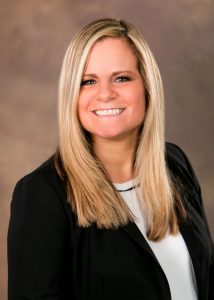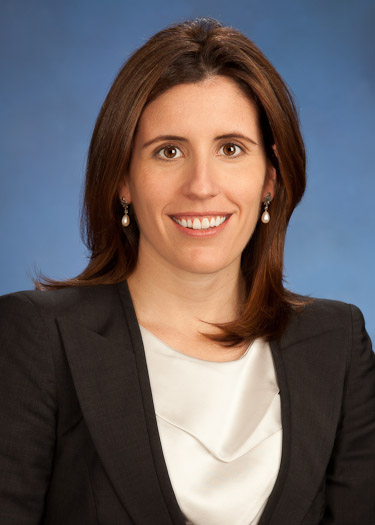 Given the sizable success that Goldman Sachs’ Katie Koch has had in her career, it may seem surprising that failure is one of the factors that drives her.
Given the sizable success that Goldman Sachs’ Katie Koch has had in her career, it may seem surprising that failure is one of the factors that drives her.
“Taking risks and refusing to be paralyzed by a fear of failure has served me well,” she says, explaining that she has developed a sound personal philosophy and approach to taking risk. “I approach every challenge with a philosophy that my mom introduced to me and my siblings when she would say, ‘What choice would you make if you knew you would not fail?’”
Taking that approach has allowed Koch to make decisions based on optimism rather than fear and has biased her towards taking calculated risks. “When you’re taking risk repeatedly, you’re naturally going to occasionally fail, so it’s important to view failure as fuel,” she says. A quote that has resonated with her came from an inspiring commencement address by soccer superstar Abby Wambach, who said, “Failure is not something to be ashamed of, it’s something to be POWERED by. Failure is the highest octane fuel your life can run on. You got to learn to make failure your fuel.”
If something doesn’t work out the way you wanted it to, figure out why, and move forward with those lessons, Koch advises.
Taking Risks Leads to Diverse and Rewarding Career Path
Although Koch has spent 16 years with Goldman Sachs, it’s as though she’s had several careers, given the diverse portfolio of experiences she’s had – across different divisions, offices (Chicago, London and New York) and four different business lines. One of her favorite roles is working with incoming talent, and she always makes sure to express how this wealth of opportunities allows professionals at Goldman Sachs to experience a fulfilling career – at one firm.
Koch acknowledges it can be challenging to start over with a new business, team and mandate, but the advantages of working in a new business are immense.
First, she has been able to build a deep network, and secondly, working in different roles allows you to have additional context as you inevitably come across problems you’ve tackled before.
And while she was grateful to be named a partner at the age of 36, the aspect that was most meaningful was having so many people, including her own team, champion her throughout the process. “I believe that the more senior you become, the more dependent your success is on having the best team around you and the right sponsorship above you.”
Living Out a Commitment to Diversity
Koch’s belief in the importance of diversity permeates every aspect of her role at Goldman Sachs. She sees a strong business case for spending time and effort to build diverse teams, and her role helping to lead the equity business – which oversees $65 billion in assets – has proven that diversity of thought is critical to positive investment outcomes. “Successful investing requires the healthy tension of variant perspectives, so it’s a competitive advantage that we have a highly diverse investing team; more than half of our assets are handled by talented portfolio managers who happen to be women, an industry-leading statistic,” she notes.
At the firmwide level, Koch is a champion of Launch With GS, a new initiative that will invest $500 million of the firm’s and its clients’ capital in private, late-stage, women-founded, women-owned or women-led companies, through direct funding, as well as seeding women investment managers who are starting their own funds. “Our ambition is to become a partner of choice for women seeking to scale their businesses and build capital,” she says of the effort.
Sharing Advice That Has Propelled Her Career
Mentoring women is important to Koch, and one lesson that she is quick to impart is that you have to treat a career differently than school. Women in particular excel in the academic environment, where they are rewarded for subject mastery; however, when women transition to a career, they often remain on that path and focus on the content of their role and “keeping their head down.” While it’s vital to be a subject matter expert at your core, she finds women tend to overinvest in this, but chronically underinvest in developing their network.
“I encourage young women to be exceptional at what they do, but also be deliberate in carving out time to meet people in their direct line of business and across their firm, industry and client base, all of which will help you build seniority over the long arc of your career,” she says. “You need to balance what you know with who you know.”
As the beneficiary of a supportive community of other partners, she advises her peers to continue to signal ambition – appropriately of course – and create a plan to articulate career goals to the right people, at the right moment and in the right way.
“It’s so important to think boldly and have a clearly defined top-level goal. Knowing exactly where you want to go allows you to organize your time and efforts toward those aspirational roles,” she says, recommending that while women should focus on outstanding execution in their current role, they should also be asking themselves, “Am I working toward my next job?”
Koch comments, “One of the best ways to prove you are deserving of a job is to act as though you already have the title – even before it is officially yours. That communicates to others that you are hungry, proactive and will bring solutions as a leader.”
One of the programs that was particularly beneficial to Koch was the personal coaching that Goldman Sachs offers, where the coach solicits direct feedback from everyone you work with and provides insight to help you grow as a professional.
Koch noted, “As you achieve early success in your career you can lose sight of how much room there is to improve. This is compounded by the fact that as you get more senior, less people are willing to give you tough feedback directly.”
The coaching process can help you address your blind spots, and Koch found real value in getting this feedback to continue to grow and evolve in her career. She shares, “Once I really opened myself up to the feedback, I learned some profound truths about myself as a professional and a manager. I distinctly remember my coach trying to make the point that people felt shut-down when I interrupted them. I interjected to explain that I don’t interrupt people – I just help them reach a conclusion more quickly. She had to gently point out that I had just interrupted her to explain that I don’t interrupt people!” Taking feedback can be humbling, but Koch believes that self-actualization is only possible when you seek out areas to improve at every stage of your career.
Despite the many hats she wears at work, Koch’s main priority is her family—her husband, two daughters and a son born a few weeks ago. With three children aged four and under, she feels extremely fortunate to have bosses such as Tim O’Neill and Eric Lane, who don’t see successful careers and meaningful family lives as mutually exclusive. “I have had an exceptionally positive experience at Goldman Sachs simultaneously growing my career and my family. I think it underscores the importance for women to choose their employer and their boss wisely.”
“My family is my biggest priority, but I always think of what we say in investing—we won’t get the stock picks right every time, but we try to get it right over time. To me that is the ideal metaphor for integrating life and family. My family can’t come first every time, but they must come first over time, and my goal is to organize my life that way.”
Prior to kids, she and her husband indulged a love of adventure travel; she has been to all seven continents—including Antarctica for her honeymoon—and has climbed extensively from Kilimanjaro to the Alps. For now, most of her adventures take place through books. As an avid reader, she averages about a book a week and frequently trades recommendations with her mom and her team.

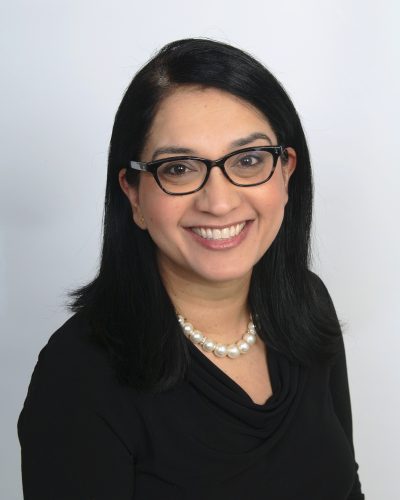 When Harp Rana’s daughter was younger, and they watched Scooby Doo together, she would say, “Be a Velma, not a Daphne, but don’t let Fred take all the credit.”
When Harp Rana’s daughter was younger, and they watched Scooby Doo together, she would say, “Be a Velma, not a Daphne, but don’t let Fred take all the credit.”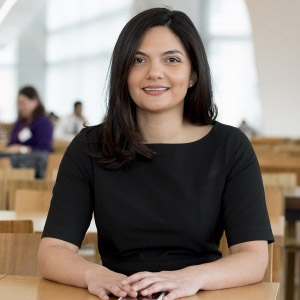

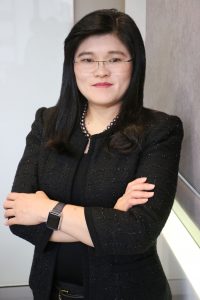 Speak up; share your aspirational goals; and pursue your ambitions, advises PwC Thailand’s Vilaiporn Taweelappontong.
Speak up; share your aspirational goals; and pursue your ambitions, advises PwC Thailand’s Vilaiporn Taweelappontong.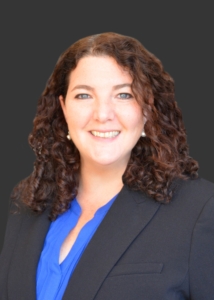 While you can’t choose your circumstances, you can choose how you react to them, says Shearman & Sterling’s Emma Maconick.
While you can’t choose your circumstances, you can choose how you react to them, says Shearman & Sterling’s Emma Maconick.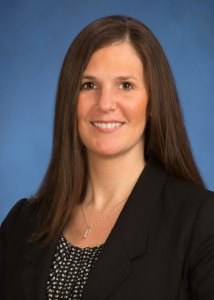 “An engineering career can be full of action and excitement,” says Goldman Sachs’ Laura Takacs.
“An engineering career can be full of action and excitement,” says Goldman Sachs’ Laura Takacs.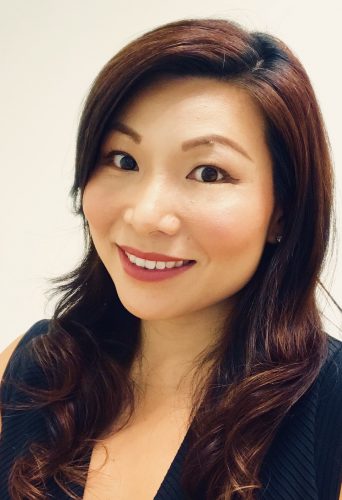
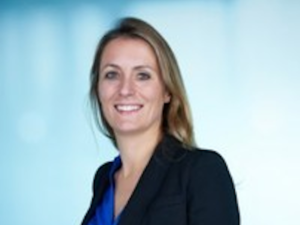 There is a famous book by the French Minister for European Affairs Nathalie Loiseau called Choisissez Tout (Choose Everything), where she underscores that women don’t have to make sacrifices. There is no standard in life: You don’t have to be ambitious
There is a famous book by the French Minister for European Affairs Nathalie Loiseau called Choisissez Tout (Choose Everything), where she underscores that women don’t have to make sacrifices. There is no standard in life: You don’t have to be ambitious 